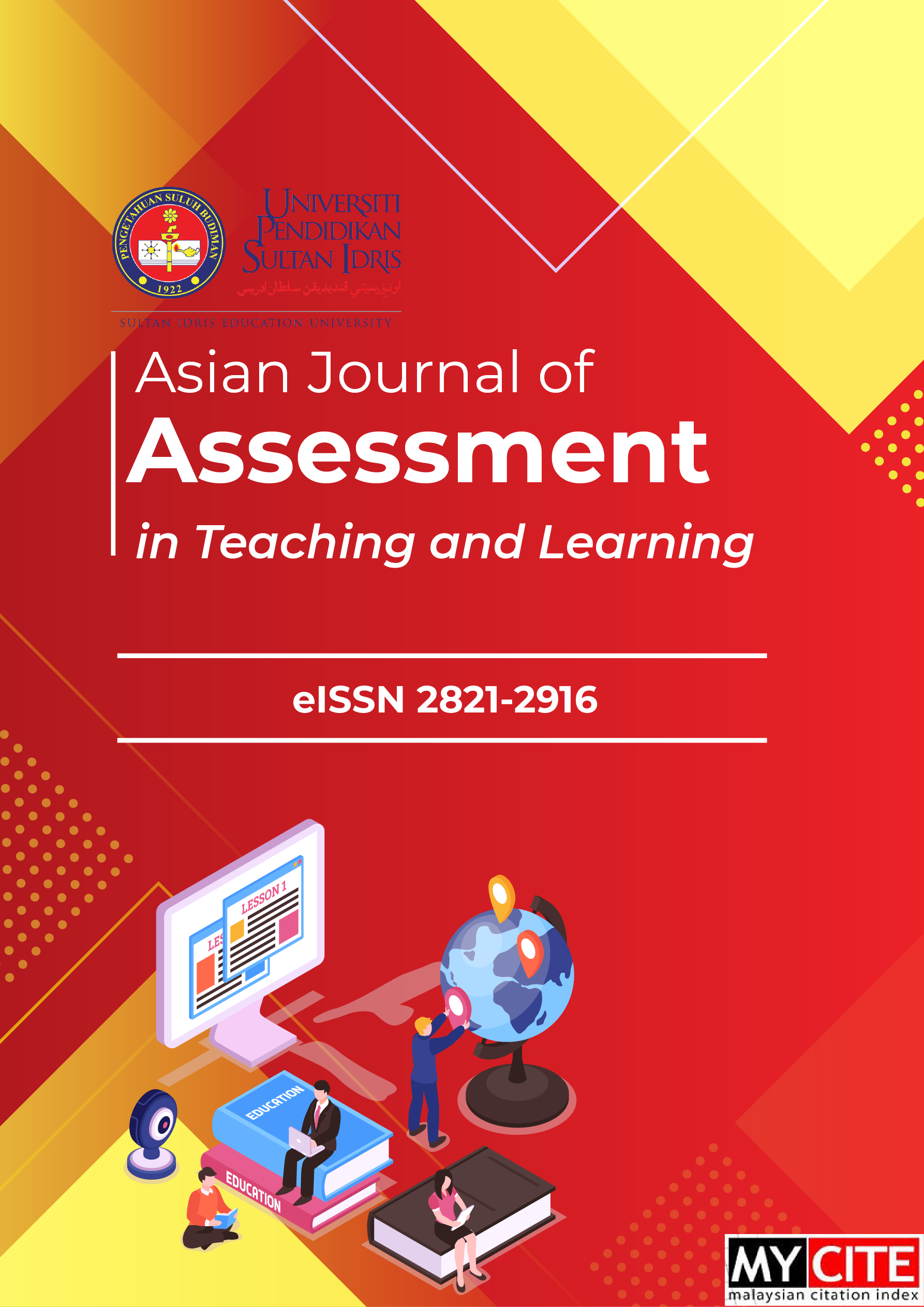Students’ Attitude Towards Teacher Feedback: A Case Study of Uzbekistan EFL Learners
DOI:
https://doi.org/10.37134/ajatel.vol13.1.7.2023Keywords:
Teacher Feedback, Learning Progress, Attitudes, ELT, Learning ProcessAbstract
The present study investigates the attitudes of students towards teacher feedback as a means of enhancing their learning progress in English Language Teaching (ELT) classrooms. In this case study, 28 students participated (N = 28; 20 female and 8 male; age = 21). The study methodology is quantitative and analyzed using a Likert scale. The author of the study conducted a questionnaire and interview to gather the data. The respondents have positive attitudes towards teacher feedback. The result of the survey shows the importance of providing 1) individual, 2) clear, 3) motivational, 4) written and oral (dialogue-driven), 5) corrective, and 6) constructive feedback for learners’ future progress in their learning process. Besides, the effectiveness of giving feedback for productive skill tasks and activities was also identified from the collected data. While feedback is intended to be constructive and supportive, students’ attitudes can often hinder its effectiveness and potentially hinder their learning outcomes. Conversation barriers, such as cultural obstacles or insufficient clarity in the feedback provided, have the potential to hinder students' comprehension and interpretation of feedback, leading to unfavorable attitudes towards the feedback process. Their attitudes toward teacher feedback can also have an impact on students' motivation and engagement in the learning process. The problem statement aims to address the issues mentioned above, such as communication barriers between a teacher and a student and learners’ engagement and motivation towards teacher feedback. The outcome of this study provides teachers with the opportunity to explore the various alternatives to providing feedback and realize its significance for their learners’ educational progress. In addition, further studies were also identified from the data obtained in this research.
Downloads
References
Alghazo, K., Bani Abdelrahman, M., & Abu Qbeitah, A. (2009). The effect of teachers' error feedback on Al Hussein Bin Talal University students' self-correction ability. European Journal of Social Sciences, 12(1), 142-156.
Blaxter, L, Hughes, Ch & Tight, M. (2006). How to research. Open University Press.
Borup, J., West, R. E., & Thomas, R. (2015). The impact of text versus video communication on instructor feedback in blended courses. Educational Technology Research and Development, 63(2), 161-184.
Brinko, K. T. (1993) The practice of giving feedback. What is effective? The Journal of Higher Education, 64, 574-593.
Brookhart, S. M. (2008). How to give effectivbe feedback to your students. Alexandria, VA: Association for Supervision and Curriculum Development.
Butler, D. L., & Winnie, P. H. (1995). Feedback and self-regulated learning: A theoretical synthesis. Review of Educational Research, 65, 245-281.
Carvalho, C., Santos, N. N., António, R., & Martins, D. S. M. (2021). Supporting students’ engagement with teachers’ feedback: The role of students’ school identification. Educational Psychology, 41(7), 863–882.
Chen, L..(2021). A study on the application of Teacher Feedback Language in Middle School English Class. Journal of Higher Education Research, 2 (6). https://doi.org/10.322629/jher.v2i6.584.
Cohen, L., Manion, L. and Morisson, K (2000) Research method in Education, 5th edn London: Routledge.
Ferguson, P. (2011). Students perceptions of quality feedback in teacher education. Assessment and Evaluation in Higher Education, 36(1),51-62.
Halim, T, Wahid, R & Halim, Sh. (2021). EFL students’ attitudes toward corrective feedback: a study conducted at undergraduate level. Saudi Journal of Language Studies. DOI:10.1108/SJLS-03-2021-0004.
Hartshorn, K. (2008). The effects of manageable corrective feedback on ESL writing accuracy (Doctoral dissertation). Brigham Young University, Provo, USA.
Hedgcock, J., & Lefkowitz, N. (1996). Some input on input: Two analyses of student response to expert feedback in L2 writing. The Modern Language Journal, 80(3), 287-308.
Hattie, J., & Clarke, S. (2019). Visible learning: Feedback. Routledge.
Hattie, J., & Gan, M. (2011). Instruction based on feedback. In R. E. Mayer & P. A. Alexander (Eds.), Handbook of research on learning and instruction (pp. 249–271). Routledge.
Hattie, J. & Timperley. H. (2007) The power of feedback. Review of Educational Research, 77, 81-112.
Hyland, K. (1990). Providing productive feedback. ELT Journal, 44 (4), pp. 279-285.
Leki, I. (1990). Coaching from the margins: Issues in written response. In B. Kroll (Ed.), Second language writing: Research insights for the classroom (pp. 57-68). Cambridge, UK: Cambridge University Press.
Khoiriyah, Kh. (2023). EFL Learners’ attitudes towards teacher’s and Peers’ Written Corrective Feedback. VELES Voice of English Language Education Society 7(1):33-43. DOI:10.29408/veles.v7i1.6085
McGarrell, H., & Verbeem, J. (2007). Motivating revision of drafts through formative feedback. ELT Journal, 61(3), 228-236.
Nicole, D.J., & Macfarlane-Dick, D. (2006). Formative assessment and self-regulated learning: A model and seven principles of good feedback practice. Studies in higher education, 31(2), 199-218.
Piccinin, S. J. (2003) Feedback: Key to learning. Halifax, NS: Society for Teaching and Learning in Higher Education.
Poulos, A., & Mahony, M. J. (2008). Effectiveness of feedback: The students’ perspective. Assessment & Evaluation in Higher Education, 33(2), 143–154. https://doi.org/10.1080/02602930601127869.
Walsh, B., Nixon., Walker, C. and Doyle, N (2015) Using a clean feedback model to facilitate the learning process. Creative Education, 6, 953-960. Doi:10.4236/ce.2015.610097.
Yorke, M (2003) Formative assessment in higher education: Moves towards theory and the enhancement of pedagogic practice. Higher Education, 45. 447-501.
Downloads
Published
How to Cite
Issue
Section
License
Copyright (c) 2023 Rimajon Sotlikova

This work is licensed under a Creative Commons Attribution-NonCommercial-ShareAlike 4.0 International License.





